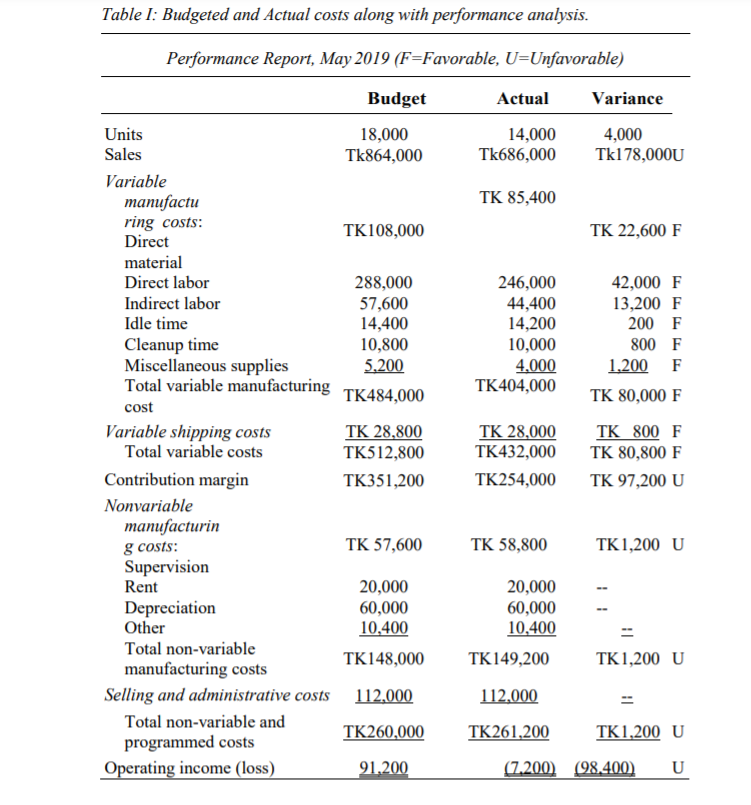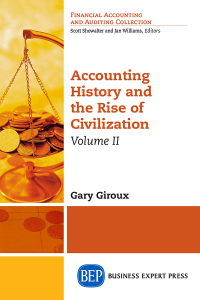Question
INTRODUCTION This case study is based on a manufacturing company called FARR Ceramics, headquartered in Dhaka, its factory situated in Gazipur and is directly monitored
INTRODUCTION
This case study is based on a manufacturing company called FARR Ceramics, headquartered in Dhaka, its factory situated in Gazipur and is directly monitored by the Dhaka head office. The case focuses on a particular order for a certain special type of ceramic cup exported periodically and the issues revolving around delivering orders and keeping costs related issues at bay. Also, the case provides an opportunity to prepare budgets based on real life cost figures and thereby appreciating the intricate details of Management Accounting.
PURPOSE
The core objective of this case study is to develop analytical problem solving capabilities within the realm of Management Accounting for the in class students. The case study provides an in-depth opportunity to evaluate how operational issues can affect the costing of orders and prepare budgets incorporating those inconsistencies. Furthermore, students learn to evaluate the impact of certain procedural changes on the costing and budgeting figures.
CASE METHODOLOGY
The case was designed by interviewing the managers on-site and looking at the prospectus of the company which had an ample amount of information for the particular order discussed in the case below. The production process was observed being physically present on-site and scrutinizing the intricate details of the manufacturing process ins and outs of the sequence flowed throughout.
The data provided at the end which would serve as the basis of performing the associated calculations have been collected from secondary sources the company financial and cost data archives to be particular.
The case has come into life integrating a situational approach to problem analysis during the day to day business operations and the need to analytically look at costing complexities.
CASE
When Mr. Jamilur Rahman, arrived at his office at FARR Ceramics Production Division on June 4, 2019, he was satisfied to see the month to month performance report for May resting on his desk. His responsibility as Factory Manager was to investigate the after-effects of tasks of every month and to set up a detailed report on tasks that should have been sent to the corporate office of FARR Ceramics. During May 2019, the scenario at the division had been very tensed due to the declining order and a monthly report would give the chance to discover how things were for a noteworthy clients order.
The Current Scenario FARR Ceramics manufactures a cup of a special design, called Brillance Fleurs Sauvages Combi cup that is sold to a household appliance manufacturer Rosenthal GmbH. Rosenthal GmbH is a German retailer of porcelain and other household goods owned since 2009 by the Italian group Sambonet Paderno Industrie. Rosenthal has a rolling order of fixed quantity, 216,000 units/ year for this cup with FARR Ceramics since 2011. However, from January 2019, FARR was struggling to supply the required quantity each month due to the operational issues entrenched within their production schematic. Moreover, what was even more concerning was that FARR was receiving a lower order quantity than their budgeted amount from Rosenthal.
Barely any progress had been made in both the organization's working methods and frameworks. This is because FARR wanted to explore how well they were being able to adjust to the improved production techniques implemented at the factory.
The production of 1 cup takes around 0.4 hours. The manufacturing process consists of all standard stages like automatic and semi-automatic forming of products, low-pressure casting, high-pressure casting, biscuit firing in two hours, fully automatic glazing, glost firing, decoration firing at the last stage. Keeping up an ideal quality level is the prime target and an exceptional consideration is given to forestall any sort of item defilement. The plant additionally has a well-prepared testing and quality control research center. Well-prepared designers and modelers cooperate to administer during the generation procedure to appear the structured imagined by them. Additionally, incorporated production arranging and stock administration are embraced to guarantee client support.
Experienced staff and sound innovative workgroup give FARR an extra scope of predominance as a noticeable producer in the market. The greater part of the specialized workforce has received training in Italy and Germany. Foreign specialists are serving at the manufacturing plant and adding to the improvement. Mr. Rahman, a graduate of business administration, was transferred from the head office to the production line in Gazipur during April. Mr. Junaid Khan, also from FARR corporate office, transferred as the new division director for international markets in late April.
The main reason, why Rahman was relocated to the factory, is to oversee and deal with the problem the factory was facing due to operational issues, which caused them to have backlogs in productions and order delivery. The factory operational issue is one of the main reasons why Rosenthal has greatly reduced the number of orders they are placing at FARR.
Besides, the increase in raw material prices and delays from suppliers also added to the backlog of orders posing the second reason for order decline.
Due to the decline in order quantity, Rahman had requested that the factory accountant collect the May numbers as fast as he could. However, the prompt response from the accountant beats his expectations. At the corporate office, it takes a few working days to have the monthly. The accountant at the factory had guaranteed Rahman that he would prepare the performance report in one day with some extra time work.
The international division had drafted a budget for 2019 for Rosenthal's order for the cup, in light of the sales unit and cost of production. Since sales are independent of any fluctuations, the month to month budget could simply be calculated by considering just one-twelfth of the annual plan. No changes had been made to the May budget when the order quantity was declined in January.
Performance Analysis Report

A look at the performance report affirmed Rahman's most exceedingly awful feelings. Rather than a planned profit of Tk 91,200, the report demonstrated the division made a loss of Tk7,200 in May. Taking into consideration the declining order, he considered an improved trend than demonstrated by the performance report. The factory accountant had connected the accompanying notice to the report:
June 6, 12:00 noon
Dear Sir
Please find attached the performance report for May. The profit figure is not as what we estimated it to be. It is to be noted that other than supervision costs most of the costs are under budget or at par almost. The unfavorable variance of costs associated with factory supervision was achieved by controlling other costs.
Work in Progress and finished goods inventory at the beginning and end of the month are zero.
Per unit standard costs used in budgeting this year were: Direct material Tk 6 Direct labor Tk 16
It requires 130 grams (0.13 kg) of euro fine porcelain and 0.40 labor hour to produce one cup. Euro porcelain is a specialized material used in the ceramic product. Farr's estimated cost per kg of euro porcelain Taka 46. During the month, Farr purchased 1,820 kg of raw materials at the rate of Taka 46.92 per kg to produce 14,000 cups. All of the materials purchased were used for production. There were no ending raw materials.
During the month the company recorded 5,467 direct labor hours at an hourly rate of Taka 45 to produce 14,000 units of products. Budgeted cost of labor per hour was Taka 40 (direct labor cost per Unit 16/0.40 hour required to produce one unit)
The falling order quantities from the foreign buyers were a cause for concern for FARR Ceramics and steps were needed to be taken to renegotiate larger, more profitable contracts with the buyer. As the executive pondered this unwanted reduction in demand from the foreign buyer and its long term implications on segment profitability, he was unable to shake off the looming concerns of inefficiencies which have caused a budget control failure and resulted in a net operating loss.
At the back of his mind, he was perfectly aware that a bid to cut down on costs to make the segment profitable once more can easily backfire by compromising quality and inability to export consignments on time. This delicate problem left him deep in thought as he gazed out from the window of his office contemplating the optimum solution to this complex dilemma.
CONCLUSION
Holistically, this case provides an opportunity to understand multifaceted issues in costing and delivering products and develop the skill set to prepare budgets taking a wide array of operational factors and product-related information into consideration.
This case familiarizes students with in-depth investigations of multidimensional constraints and challenges real-life organizations face when preparing, executing and controlling deviations from the budgeted quantities and values. This understanding is of cardinal importance in focusing on developing analytical skills through tackling real-life obstacles derived from case-based contexts.
QUESTIONS
Use the budget data to calculate the per-unit fixed and variable cost allocated to production. What was the actual cost per unit of production and shipping?
Table I: Budgeted and Actual costs along with performance analysis. Performance Report, May 2019 (F=Favorable, U=Unfavorable) Budget Actual Variance 14,000 Tk686,000 4,000 Tk178,000U TK 85,400 TK 22,600 F 246,000 44,400 14,200 10,000 4,000 TK 404,000 Units 18,000 Sales Tk864,000 Variable manufactu ring costs: TK108,000 Direct material Direct labor 288,000 Indirect labor 57,600 Idle time 14,400 Cleanup time 10,800 Miscellaneous supplies 5.200 Total variable manufacturing TK484,000 cost Variable shipping costs TK 28,800 Total variable costs TK512,800 Contribution margin TK351,200 Nonvariable manufacturin g costs: TK 57,600 Supervision Rent 20,000 Depreciation 60,000 Other 10,400 Total non-variable TK148,000 manufacturing costs Selling and administrative costs 112,000 Total non-variable and TK260,000 programmed costs Operating income (loss) 91.200 42,000 F 13,200 F 200F 800 F 1.200 F TK 80,000 F TK 800 F TK 80,800 F TK 97,200 U TK 28,000 TK432,000 TK254,000 TK 58,800 TK 1,200 U 20,000 60,000 10,400 TK149,200 TK 1,200 U 112,000 TK261,200 TK1,200 U (7.200) (98.400) U
Step by Step Solution
There are 3 Steps involved in it
Step: 1

Get Instant Access to Expert-Tailored Solutions
See step-by-step solutions with expert insights and AI powered tools for academic success
Step: 2

Step: 3

Ace Your Homework with AI
Get the answers you need in no time with our AI-driven, step-by-step assistance
Get Started


